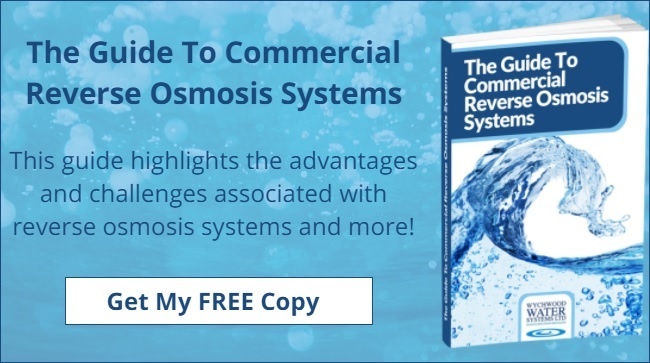
Water treatment systems are an important investment and not a purchase decision to be taken lightly. Planned preventative maintenance and routine servicing can extend the life of your system and help you avoid major problems, but there comes a time when this is no longer sufficient. When a system starts costing you more to sustain than the difference in price for investing in a new system, an upgrade suddenly becomes the most cost-effective course of action. Here are some common signs that you should start assessing the capacity of your current plant and consider shopping around for a new system.
1) Bacterial Contamination
Most water treatment systems strive to keep bacterial levels under control before they reach critical contamination levels. An infection can occur for a number of reasons, such as inadequate water temperature, insufficient flow or faulty filter membranes. An ingrained infection can be hard to treat and can mean shutting down your entire plant while it is cleansed, so if your system is starting to struggle keeping bacteria in its place, it may be worth looking at what other options are available to meet your purity requirements.
2) Increased Operational Costs
As a system grows older, it begins to consume more energy to deliver the same result that previously would have taken less. This is unfortunately the fate of all mechanical systems, but it can have particularly worrying effects in water purification plants. If you notice increased energy costs from your pump system, for instance, it may indicate that your pumps are struggling to sustain sufficient water flow. This is dangerous because it could lead to a bacterial build up in your pipes, leading to contamination of your feed water. Therefore, not only will older, or less frequently maintained kit cost more to run, but it also poses a risk of further expense through downtime and emergency repairs. You should keep a close eye on energy expenditure per gallon of purified water that comes out of your system. Sustained deviance from your normal benchmark may indicate an upgrade is needed, rather than a routine service.
3) Drop in Water Purity Levels
If your water purity levels drop below their expected range, or show signs of being erratic, it could be a sign your system needs an upgrade. One or two instances does not necessarily indicate your system is no longer fit for purpose. It could just mean that your membranes need cleaning or you need maintenance to address a mechanical fault. But if it keeps happening, it is worthwhile carrying out a system audit and addressing the root of the problem – which may involve investing in a new system.
4) Your Requirements Change
Assuming for the moment that there is nothing technically wrong with your existing system, you may want to consider an upgrade if your business requirements change. A water purification system will be designed to process a certain volume of water within each time period, e.g. 50 m³ per day. The closer you get to maximum capacity, the harder your system needs to work to purify the required quantity of water, at the desired purity level. If you are regularly stretching the limits of your system, you may find the system uses more energy, or requires more regular maintenance. If it is a reverse osmosis or filtration system, the life expectancy of your membranes may decrease. If it is a deionisation plant, you may find yourself needing to regenerate your resin beds on a more regular basis.
All this can point to a system with a larger capacity, or a different type of system altogether.
How To Decide What System You Need
Each of the main types of water treatment system – deionisation, reverse osmosis and filtration - has its own distinct strengths and suitability’s. The type of system you need will depend on the type of manufacturing water you require. For instance, if you need a high level of demineralisation, it makes sense to invest in a deionisation system. For ultrapure water, you may need a combination of one or more systems, such as a demineralisation plant with reverse osmosis pre-treatment.
When deciding when and how to upgrade, it can help to have an expert on your side to facilitate the right decision for your business. At Wychwood, our water treatment consultants can carry out comprehensive audits and feasibility tests to determine which solution is the most cost-effective for your needs; keeping an eye both on your current use and on your growth plans.
To find out more about water treatment systems in general, please download our Industrial Water Purification Guide, which can be accessed for free by clicking here.









 We are a specialist independent company involved in water purification and water treatment technologies
We are a specialist independent company involved in water purification and water treatment technologies


